There's no doubt that physics and astronomy was booming in the 1960s. The model that protons and neutrons were made of quarks was proposed and validated, the most powerful nuclear device of all time was detonated, and the Cosmic Microwave Background was discovered, validating the Big Bang. (Not to mention devastating advances in biology, too.)
But something far more awesome than that happened in 1969.
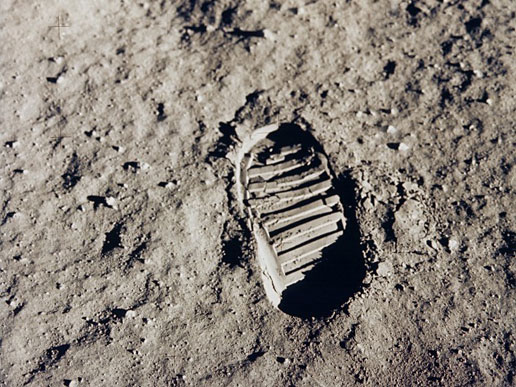
It not only trumps splitting the proton and confirming the Big Bang, it is -- for me -- the finest accomplishment in all of human history. And its 40th anniversary is exactly three weeks from today. So congratulations to the Apollo 11 crew:
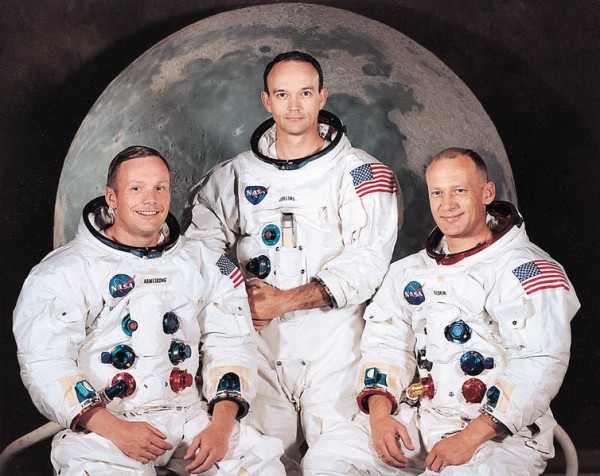
These three men are symbols of the entire space program, and of just how awesome the rest of the Universe is, outside of our home world.
There were a whole bunch of "firsts" that happened with this mission, but they can be summarized in one simple sentence:
We became the first living species to willfully transport ourselves off of our home world and onto another, and to live there, for however brief a time.
Or, as Neil Armstrong put it:
(That's Buzz on the ladder, by the way. Neil was already down there; who else was going to snap the photo?!)
We have always been explorers, but it was this moment, out of all the moments of the 20th century, that exemplifies just how capable we are of accomplishing even the most daunting of all possible tasks. We left Earth, traveled hundreds of thousands of miles through space, and walked on another world.
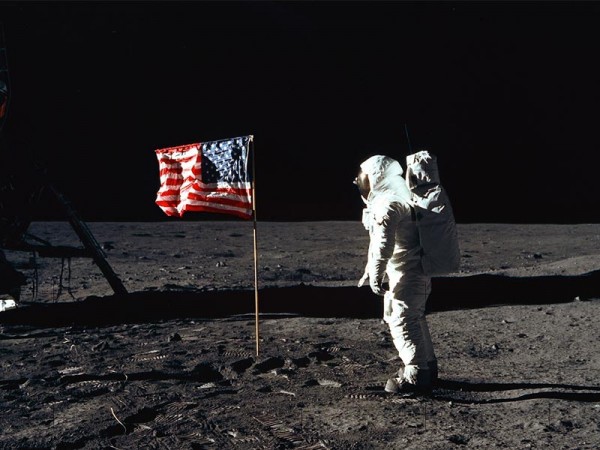
As important as everything else was during the 1960s, nothing else captured the world's imagination as Apollo 11 did. This is so much more important than confirming a scientific theory, than a new, groundbreaking observation, or even an unexpected discovery. This is something that galvanized the entire Earth, and brought us all together, in awe, at what we are capable of doing -- for good, for knowledge, for adventure, and for the human endeavor -- as a species.
It's up to us to find the next great enterprise for discovery to inspire the world. What will we do in the 21st century to rival walking on another world for the very first time?

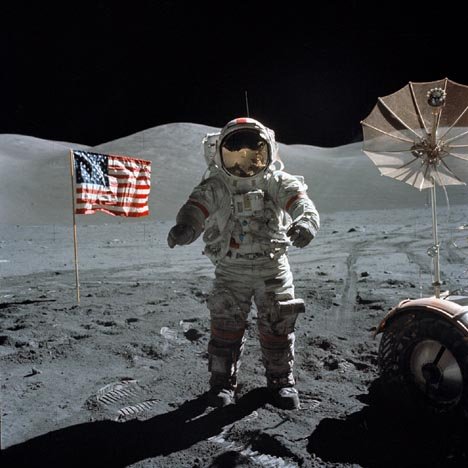
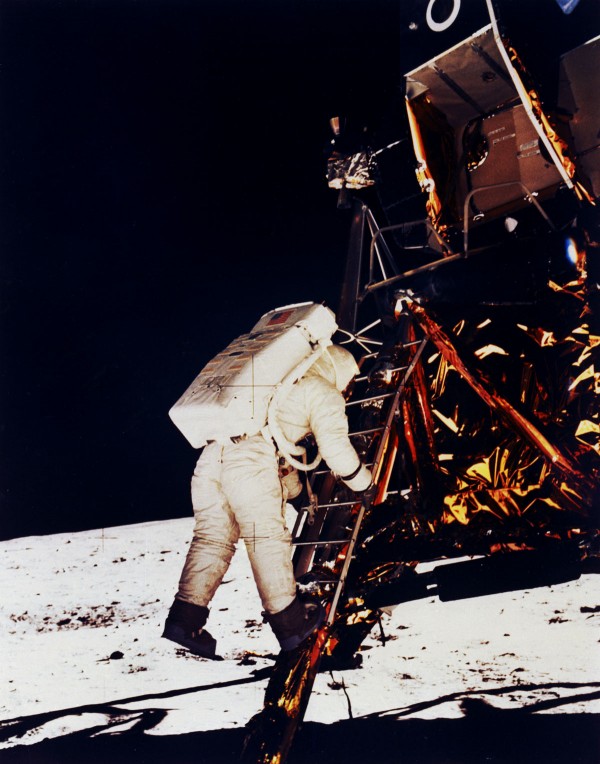
Those photos are obviously fake. Where is Dr. Manhattan?
Absolutely - look: http://stuffucanuse.com/fake_moon_landings/moon_landings.htm
Not to mention all the people who worked on the Apollo program. My great uncle worked for EG&G, designing seals for the spacecraft and spacesuits.
I believe the first 30 seconds of this video will clear things up.
http://www.youtube.com/watch?v=4w9EksAo5hY
And none of it was easy - thousands of people around the world were gathering data on solar activity, preparing large radio telescopes to ensure communication while the spacecraft was not directly behind the moon, the training team, technicians, engineers, the two sets of recovery teams, pre-flight and recovery medical teams and so on - it was a phenomenal operation.
Those astronauts went through the harshest and most rigorous training required of astronauts all in preparation for a relatively short trip. Commander Mike Collins, Neil Armstrong, and Buzz Aldrin pulled themselves through incredible duress to do something so rare and enviable - and they made it look so easy.
I only wish we were doing this more often!
NASA performs outright scientific miracles on a budget that's a hundredth the size of what it deserves. If space travel got half - heck, a tenth - of the amount of money spent on "Defense", we'd probably have a permanent station on the Moon by now.
I can't view the video, Siegel, can you find another one that's not restricted ?
hey! why is the flag waving in the wind on the last picture??? WHY ARENT THEIR ANY STARS!!!!! HOW COME THE SHADOWS AREN'T PARALELL????? how come the DIRT BENEATH THE LANDER ISN'T BLOWN AWAY CAUSE OF THE THRUST FROM THE ROCKET EXHAUST?????!!!!! HOW COME THE DIRT IS GRAYISH WHEN IT SHOULD BE ORANGE, LIKE CHEDDAR CHEESE?????? where is the Star Trek PINBALL GAME THAT RAMMSTEIN LEFT UP THERE??? COCA COLA! WONDERBRA!!!
It was a miracle those rockets got of the ground with those massive balls of steel those guys had.
"What will we do in the 21st century to rival walking on another world for the very first time?"
Colonizing one